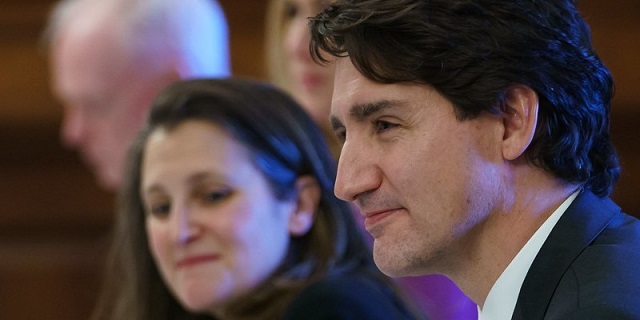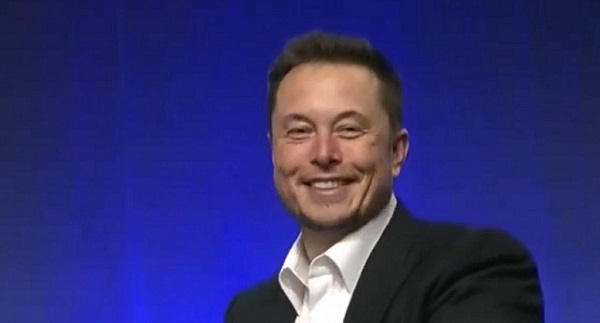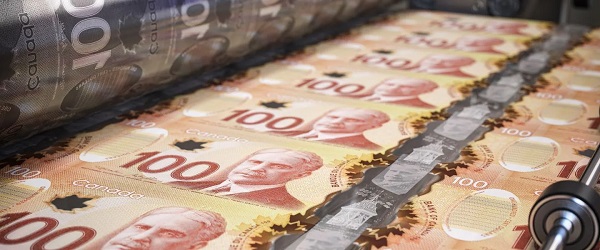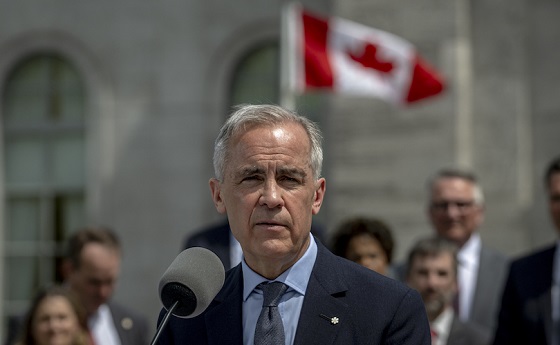Business
Federal carbon tax a hot issue today

From Resource Works
When it comes to Canada and carbon taxes, times have certainly changed in very little time.
We had wondered how long Ottawa’s national carbon-tax system would last when, after implementing it as a mandatory national scheme, the feds suddenly announced an exemption for home heating oil in Newfoundland and Labrador.
Pressed by NL Premier Andrew Furey, a Liberal, and Liberal MP Ken McDonald, Prime Minister Justin Trudeau announced the exemption last October, saying it would help Atlantic Canadians with the cost of living.
The exemption would last until March 31, 2027. And for NL households that burn oil, the feds said it would mean an average $250 annual savings.
Alberta and Saskatchewan saw the exemption as unmitigated vote-buying politics, and they weren’t alone.
On Jan. 1, 2024, Saskatchewan stopped collecting the federal carbon tax on natural gas used for home heating in that province. Premier Scott Moe declared that this was in response to Ottawa’s “unfair” exemption for Newfoundland and Labrador.
“Trudeau has provided a carbon tax exemption on home heating for families in one part of the country, but not here. It’s unfair, it’s unacceptable.”
Saskatchewan went on to challenge the exemption, in federal court, on constitutional grounds, and won a temporary injunction. Later, pending a final court decision, Saskatchewan and Ottawa agreed that the province would be responsible for “50 percent of the outstanding tax amounts.”
But Ottawa’s carbon tax (oops, sorry, Ottawa likes to call it “carbon pricing” and “carbon pollution pricing”) has now run into new political trouble.
First, national NDP leader Jagmeet Singh, who had voted for the carbon tax, pulled out of a deal supporting Trudeau’s Liberal Party in government.
Singh then went on to slam Trudeau’s approach of exempting fuels in favored geography. And he said the NDP would come up with a system that doesn’t “put the burden on the backs of working people.”
Then, British Columbia Premier David Eby, long a strong supporter of the carbon tax — but facing an election on Oct. 19 — suddenly declared: “I think it’s critical to also recognize that the context and the challenge for British Columbians have changed. A lot of British Columbians are struggling with affordability.
“If the federal government decides to remove the legal backstop requiring us to have a consumer carbon tax in British Columbia, we will end the consumer carbon tax in British Columbia.”
Would Prime Minister Trudeau remove the backstop requirement?
Apparently not. Instead, Environment and Climate Change Canada is looking to run a $7-million “climate literacy and action” advertising campaign to promote the carbon tax and the quarterly rebates that many Canadians receive under it.
And the prime minister, earlier this year, declined to meet the premiers of Alberta, Ontario, Saskatchewan, New Brunswick, and Newfoundland and Labrador on the issue.
“The carbon tax has contributed to increasing stress and financial pain for millions of Canadians,” Alberta Premier Danielle Smith wrote to the prime minister.
Ontario Premier Doug Ford wrote: “While we all have a role in protecting the environment, it cannot be done on the backs of hardworking people.”
But Trudeau turned down the call for a meeting: “We had a meeting on carbon pricing and every single premier came together to work on establishing a pan-Canadian framework on climate change years ago.
“And part of it was that there would be a federal backstop to make sure that pollution wasn’t free anywhere across the country.”
Whether the carbon tax has “worked” or not to reduce pollution is an open question. Supporters say yes. Opponents say no.
A poll late last year found that Canadians were feeling slightly more confident in the carbon tax’s effectiveness at combating climate change — but uncertainty was still high.
But the Liberal government is already getting a message from voters — having lost in two recent by-elections in Manitoba and Quebec, and in an earlier one in a “safe seat” in Ontario (Toronto-St. Paul’s).
In the Quebec one on Monday, the Liberals lost their longtime safe seat of LaSalle—Émard—Verdun to the NDP, by just over 200 votes. It had been a Liberal stronghold for years, won by more than 20 percent of the vote in previous campaigns.
The next federal election will take place on or before October 2025, and Trudeau’s opponents have already been loudly cranking up “Axe the Tax” campaigns.
And that means the carbon tax.
Automotive
Elon Musk Poised To Become World’s First Trillionaire After Shareholder Vote


From the Daily Caller News Foundation
At Tesla’s Austin headquarters, investors backed Musk’s 12-step plan that ties his potential trillion-dollar payout to a series of aggressive financial and operational milestones, including raising the company’s valuation from roughly $1.4 trillion to $8.5 trillion and selling one million humanoid robots within a decade. Musk hailed the outcome as a turning point for Tesla’s future.
“What we’re about to embark upon is not merely a new chapter of the future of Tesla but a whole new book,” Musk said, as The New York Times reported.
Dear Readers:
As a nonprofit, we are dependent on the generosity of our readers.
Please consider making a small donation of any amount here.
Thank you!
The decision cements investor confidence in Musk’s “moonshot” management style and reinforces the belief that Tesla’s success depends heavily on its founder and his leadership.
Tesla Annual meeting starting now
https://t.co/j1KHf3k6ch— Elon Musk (@elonmusk) November 6, 2025
“Those who claim the plan is ‘too large’ ignore the scale of ambition that has historically defined Tesla’s trajectory,” the Florida State Board of Administration said in a securities filing describing why it voted for Mr. Musk’s pay plan. “A company that went from near bankruptcy to global leadership in E.V.s and clean energy under similar frameworks has earned the right to use incentive models that reward moonshot performance.”
Investors like Ark Invest CEO Cathie Wood defended Tesla’s decision, saying the plan aligns shareholder rewards with company performance.
“I do not understand why investors are voting against Elon’s pay package when they and their clients would benefit enormously if he and his incredible team meet such high goals,” Wood wrote on X.
Norway’s sovereign wealth fund, Norges Bank Investment Management — one of Tesla’s largest shareholders — broke ranks, however, and voted against the pay plan, saying that the package was excessive.
“While we appreciate the significant value created under Mr. Musk’s visionary role, we are concerned about the total size of the award, dilution, and lack of mitigation of key person risk,” the firm said.
The vote comes months after Musk wrapped up his short-lived government role under President Donald Trump. In February, Musk and his Department of Government Efficiency (DOGE) team sparked a firestorm when they announced plans to eliminate the U.S. Agency for International Development, drawing backlash from Democrats and prompting protests targeting Musk and his companies, including Tesla.
Back in May, Musk announced that his “scheduled time” leading DOGE had ended.
Business
Carney’s Deficit Numbers Deserve Scrutiny After Trudeau’s Forecasting Failures

From the Frontier Centre for Public Policy
By Conrad Eder
Frontier Centre for Public Policy study reveals a decade of inflated Liberal forecasts—a track record that casts a long shadow over Carney’s first budget
The Frontier Centre for Public Policy has released a major new study revealing that the Trudeau government’s federal budget forecasts from 2016 to 2025 were consistently inaccurate and biased — a record that casts serious doubt on the projections in Prime Minister Mark Carney’s first budget.
Carney’s 2025–26 federal budget forecasts a $78.3-billion deficit — twice the size projected last year and four times what was forecast in Budget 2022. But if recent history is any guide, Canadians have good reason to question whether even this ballooning deficit reflects fiscal reality.
The 4,000-word study, Measuring Federal Budgetary Balance Forecasting Accuracy and Bias, by Frontier Centre policy analyst Conrad Eder, finds that forecast accuracy collapsed after the Trudeau government took office:
- Current-year forecasts were off by an average of $22.9 billion, or one per cent of GDP.
- Four-year forecasts missed the mark by an average of $94.4 billion, or four per cent of GDP.
- Long-term projections consistently overstated Canada’s fiscal health, showing a clear optimism bias.
Eder’s analysis shows that every three- and four-year forecast under Trudeau predicted a stronger financial position than what actually occurred, masking the true scale of deficits and debt accumulation. The study concludes that this reflects a systemic optimism bias, likely rooted in political incentives: short-term optics with no regard to long-term consequences.
“With Prime Minister Carney now setting Canada’s fiscal direction, it’s critical to assess his projections in light of this track record,” said Eder. “The pattern of bias and inaccuracy under previous Liberal governments gives reason to doubt the credibility of claims that deficits will shrink over time. Canadians deserve fiscal forecasts that are credible and transparent — not political messaging disguised as economic planning.”
The study warns that persistent optimism bias erodes fiscal accountability, weakens public trust and limits citizens’ ability to hold government to account — a threat to both economic sustainability and democratic transparency.
-

 Justice1 day ago
Justice1 day agoCarney government lets Supreme Court decision stand despite outrage over child porn ruling
-

 Daily Caller2 days ago
Daily Caller2 days agoUS Eating Canada’s Lunch While Liberals Stall – Trump Admin Announces Record-Shattering Energy Report
-

 Business1 day ago
Business1 day agoCarney’s budget spares tax status of Canadian churches, pro-life groups after backlash
-

 COVID-191 day ago
COVID-191 day agoFreedom Convoy leader Tamara Lich to appeal her recent conviction
-

 Business2 days ago
Business2 days agoPulling back the curtain on the Carney government’s first budget
-

 Energy2 days ago
Energy2 days agoEby should put up, shut up, or pay up
-

 Business2 days ago
Business2 days agoThe Liberal budget is a massive FAILURE: Former Liberal Cabinet Member Dan McTeague
-

 Daily Caller1 day ago
Daily Caller1 day agoUN Chief Rages Against Dying Of Climate Alarm Light










